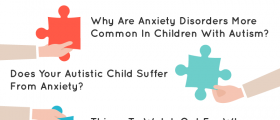
Fidgeting is an expression used for all means of bodily movements we are not aware of, whenever we are stressed and nervous. This involves actions like moving around restlessly, playing with your hair, your fingers, clothes and many other actions of this type. People are often confused by the nature of this phenomenon. However, the reasons behind it are quite simple. Namely, once our body is exposed to stress and nervousness, it gets restless, as a response to the very restlessness of our mental state. There are different causes of this problem and different ways to deal with it. Thus, if you, or someone you know have problems with fidgeting, read on and learn how to deal with this phenomenon.
Reasons behind Fidgeting
Many people believe that fidgeting in children is caused by them asking for attention or them being disobedient. However, this does not necessarily have to be the case since children may be prone to fidgeting for many other reasons. Sometimes, for example, children start fidgeting due to emotional traumas they experienced.
On other occasions, fidgeting may simply be caused by boredom, where mere playing with fingers or thins around you may be more interesting for the person than paying attention to something else. Still, the reasons behind fidgeting may be far more serious where people prone to these actions may suffer from anxiety or obsessive-compulsive disorders, dementia, delirium and many more.
How to Stop Fidgeting?
Before doing anything else, you have to recognize your fidgeting once it commences. Thus, you need to be aware of your bodily behavior at all times and react once the fidgeting takes place. Since this is harder with children, parents need to pay close attention to these actions, reacting once they notice it, telling their children to stop. Moreover, fidgeting at home may be closely connected to doing the same at school and not paying attention to other things. Thus, parents should analyze this problem further and seek solutions before it takes its toll. Also, since this can be connected with emotional problem the child may have, conversations and understanding may help relieving the child of his/her worries and getting rid of fidgeting at the same time.
Finally, adults who are faced with this problem, can find different means of getting themselves occupied and relaxed, stopping the fidgeting process instead. Yoga, music, meditation can all be possible choices in these cases. Nevertheless, any serious and persistent causes of this problem need to be treated further. So, people who cannot deal with their fidgeting should seek medical attention or go to counseling sessions.
- www.nhs.uk/news/lifestyle-and-exercise/fidgeting-probably-not-a-useful-alternative-to-proper-exercise/
- www.nhs.uk/conditions/restless-legs-syndrome/treatment/
- Photo courtesy of Rennet Stowe by Wikimedia Commons: commons.wikimedia.org/wiki/File:Tapping_pencil.jpg

















Your thoughts on this
Loading...